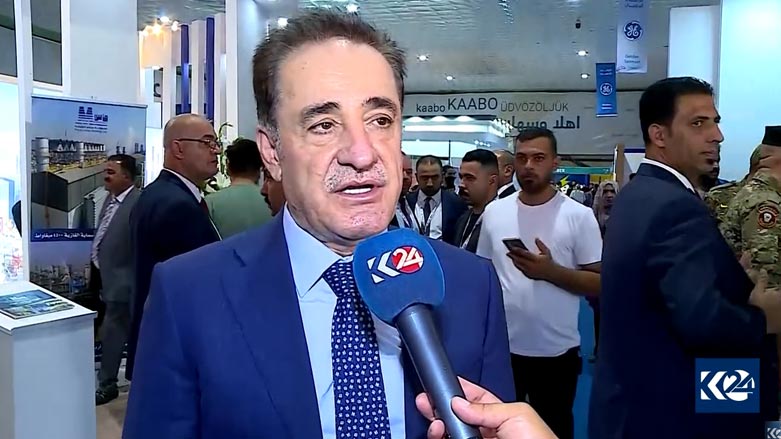Iraqi Minister of Electricity calls for cooperation with the Kurdistan Region to enhance energy supplies

ERBIL (Kurdistan 24) – The Iraqi Minister of Electricity, Adel Karim, on Friday called on the federal government to coordinate and cooperate with the Kurdistan Region to develop the country’s energy supplies.
Karim made the statement in an interview with Kurdistan 24, on the sidelines of the Seventh Energy Exhibition and Conference in Baghdad, stressing Iraq’s need for large investments in the gas sector.
Kurdistan Region’s natural gas reserves amount to 5.6 trillion cubic feet, which is a significant quantity measured in relation to the world’s total gas resources.
Karim said that Iraq cannot presently meet its domestic energy needs.
He added, "If the Kurdistan Region produces gas, we can buy it because we need more gas in the coming years."
The Iraqi system as a whole needs 35,000 megawatts during summer. The national grid currently produces less than 20,000 megawatts.
Karim indicated that there is cooperation between the Kurdistan Region and major companies working in the energy field.

The federal government remains dependent on energy imports from Iran. Many Iraqis are upset that successive Iraqi governments have failed to develop the electricity network, despite the 19 years since the fall of the previous regime.
The head of the (MAS) Holding Group, Ahmed Ismail, previously told Kurdistan 24 on the sidelines of the same exhibition that the Kurdistan Region could fill Baghdad's needs for power, given its huge potential for gas production.
The main electrical system in Iraq suffers from outages every day of the year, and the shortages get worse during the hot summer months when temperatures reach 50 degrees Celsius.
